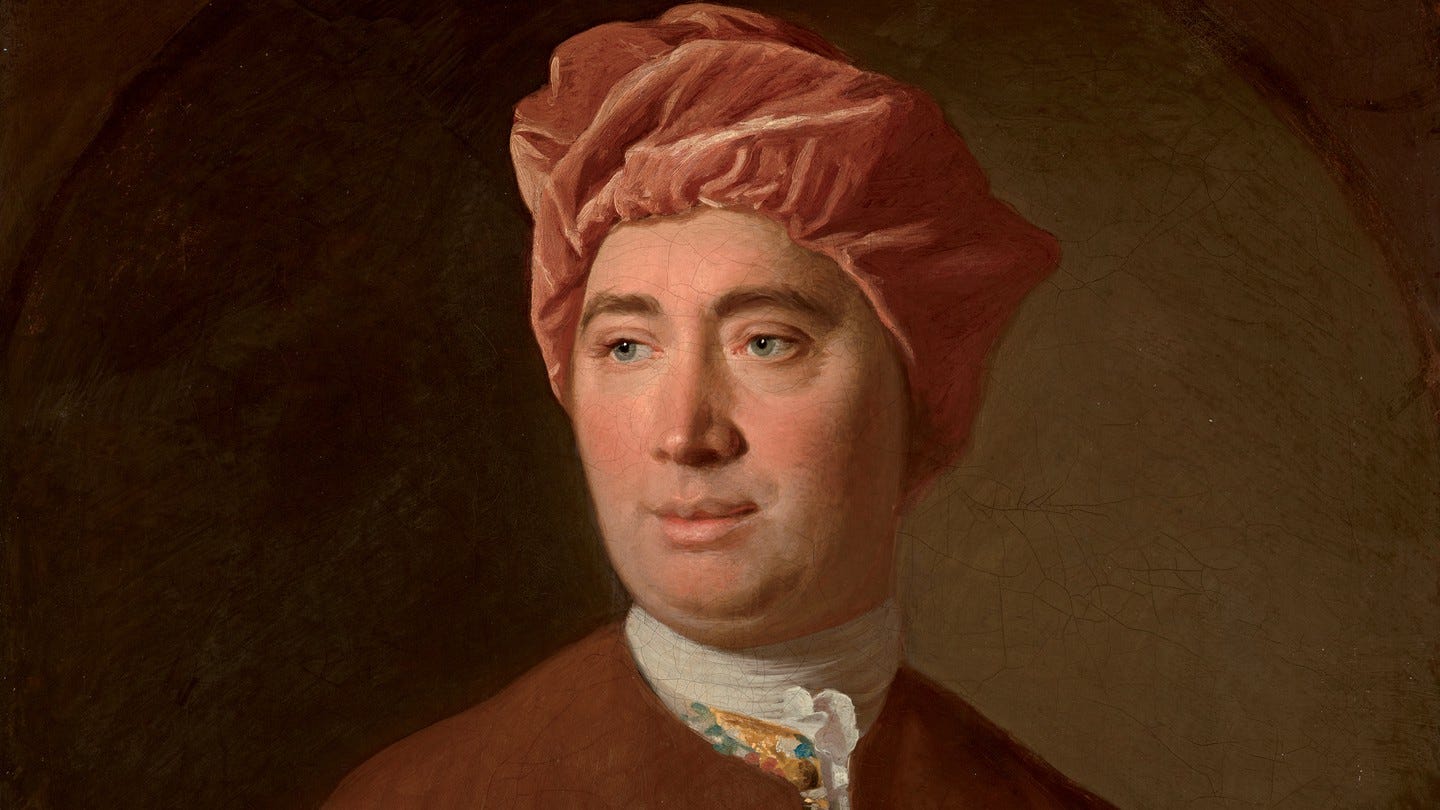David Hume, co-founder of market liberalism
Adam Smith is rightly regarded as the father of market-oriented thinking, but Hume's contributions are almost equally important.
Adam Smith is usually regarded as both the father of economics and specifically (although some debate this) the father of free market economics. Yet, the contributions of his friend, David Hume (arguably the greatest philosopher of all time) are just as important. First, there are Hume’s explicitly economic essays. The most famous one is “Of the Balance of Trade”, which demolishes mercantilist logic by arguing that trade balances are irrelevant, and in the long run, more imports are followed by more exports. Then there is Hume’s early advocacy of what today is called the quantity theory of money. Scott Sumner has a good discussion of how Hume got there first.
In the 20th century, the greatest champion of the quantity theory was Milton Friedman. His exposition of the quantity theory went hand in hand with his insistence that monetary policy should be guided by a simple rule of maintaining a steady and stable growth in the money supply; in this he followed the Chicago tradition of arguing for rules against discretion, as articulated eloquently earlier by Henry Simons. Again David Hume’s influence, either directly or indirectly, is there. In Hume’s political thinking, the preferability of rules over the discretionary power of rulers and office holders plays an important role, as it did in the thinking of almost every classical liberal thinker ever since. Hume even anticipated, when writing on the “rules of justice”, arguments by economists about time-inconsistency. Some authors even argue that discretionary monetary policy and regulation is fully inconsistent with the classical liberal tradition, with the rule of law as one of its sine qua non.
Hume also believed that while people are very much capable of altruism, when designing political and economic systems, they should still be treated as if they were self-interested. This is partly because altruism is more frequent and also more intense among close relatives and friends. For this reason households do not face quite the same problems as societies. Hume’s rules of justice are needed precisely when there is extensive division of labour among strangers. Hayek later referred to this as “the Great Society” and argued that it is driven by laws very different from what can be applied to families and small, close-knit communities. Hume’s related ideas importantly influenced the American founding fathers, and partly through them, modern public choice economics.
Hume believed that much of what we do, either as individuals or as collectives, depend heavily on accumulated habits and customs. In modern economic language this means all of us inherited a stock of capital that guides our behavior and even our institutions and politics. This realization should guard us against utopian ideas that would do away with all of our customs and institutions - often, this is neither possible, nor desirable. Free market people are fond of the concept of consumer sovereignty, and an emphasis on habits and customs might call into question the whole concept of the sovereignty of consumers. However, as shown by Becker and Murphy (1988), it need not be the case. Rational, forward-looking people can also become or remain highly habitual beings. Sometimes this is for the good, sometimes, for the bad. But the maintenance of the rationality assumption suggests we should think twice before we coerce individuals into changing their habits and choices. Hume famously argued for the (conditional) permissibility of suicide, even though people’s “baggage”, including traumas and bad habits, play an important role in feeling so hopeless as to choose death over life. Hume also did not regard habitual behavior as “irrational”, and he even emphasized that good habits can be developed and bad habits abandoned. In short, Hume recognized both the complexity of human nature, but also sided with the freedom to choose in most (though not all) cases.
Finally, let me mention that I have read and heard many-many mentions of and references to Hume by virtually all important economists in the Chicago, Austrian and Virginia traditions, including Milton Friedman, F.A. Hayek, Gary Becker, James Buchanan or Robert Lucas. The influence is clearly there and it is in large parts direct. It is time to appreciate Hume more fully as, if not the father, but an important co-founder of modern market-oriented thinking (which you may call “neoliberalism, if you want).



